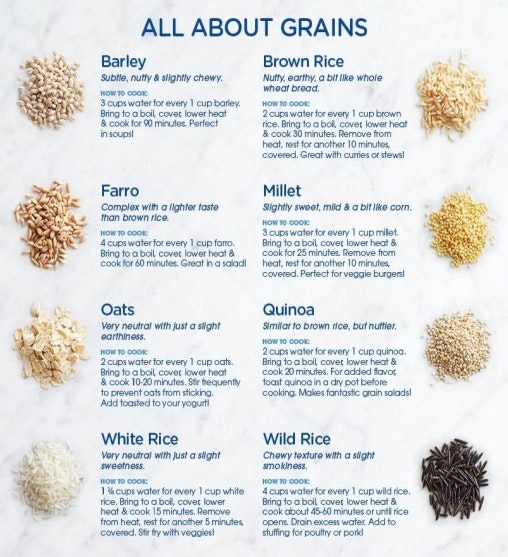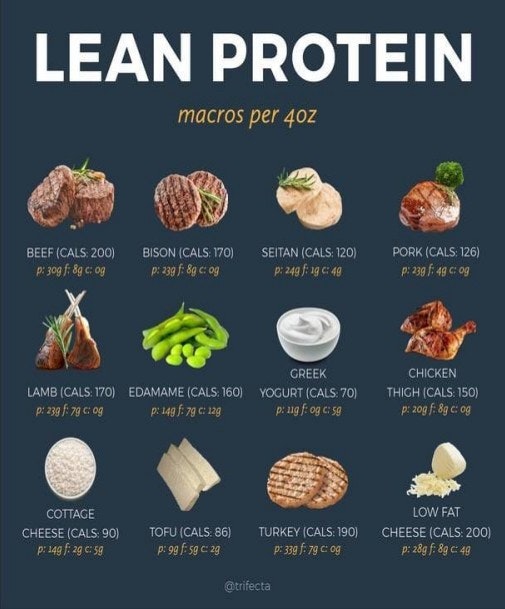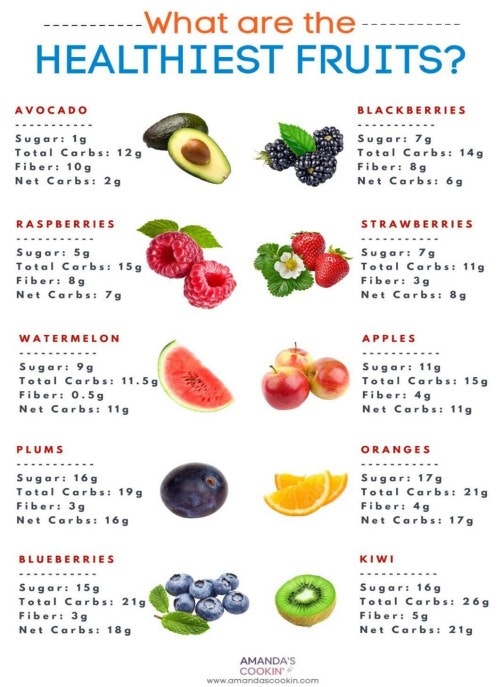Academy Nutrition
What to Look for in Protein Bars
1. Protein Content
- Goal: 10–20g+ of protein (especially post-workout)
-
Best Sources:
- Whey Protein
- Pea Protein
- Brown Rice Protein
2. Ingredients
- Look for a short, recognizable ingredient list with minimal additives or preservatives.
-
Avoid:
- High Fructose Corn Syrup
- Artificial Sweeteners
- Hydrogenated Oils / Trans Fats
- Excessive Sugar Alcohols
3. Sugar
- Aim for under 8g per bar, unless it’s for pre-workout.
4. Fiber
- Helps with satiety and digestion (unless pre-workout).
- Target: 3–5g per bar
-
Good Sources:
- Chicory Root Fiber
- Oats / Oat Fiber
- Psyllium Husk
5. Carbohydrates
- Low-carb: Best for snacking or low-carb diets
- Higher-carb: Best for pre- or post-workout fuel
6. Fats
- Choose healthy fats from seeds and nuts (avoid pre-workout).
- Avoid: Trans fats & limit saturated fats
- Healthy Options: Nuts, Chia Seeds, Flaxseeds
7. Calories
- Snack: 150–250 calories
- Meal Replacement: 300–400 calories
8. Micronutrients
- Bonus: Bars that include added vitamins and minerals
Best Protein Bars – By Goal
Weight Loss / Calorie-Friendly Options
-
Barbells Protein Bar
- Calories: 200
- Fat: 8g
- Carbs: 18g
- Protein: 20g
- Sugar: 1–2g
-
No Cow Protein Bar
- Calories: 200
- Fat: 5g
- Carbs: 26g
- Protein: 20g
- Sugar: 1g
-
Protein One Bar
- Calories: 90
- Fat: 2g
- Carbs: 11g
- Protein: 10g
- Sugar: 1g
-
think! Protein Bar
- Calories: 170
- Fat: 13g
- Carbs: 9g
- Protein: 10g
- Sugar: 0g (contains sugar alcohols)
Pre/Post-Workout Bars
-
CLIF Builders Protein Bar
- Calories: 280
- Fat: 9g
- Carbs: 31g
- Protein: 20g
- Sugar: 17–20g
-
Larabar
- Calories: 210
- Fat: 10g
- Carbs: 28g
- Protein: 3g
- Sugar: 13–18g
-
PowerBar Protein Bar
- Calories: 210
- Fat: 5g
- Carbs: 27g
- Protein: 20g
- Sugar: 12–18g
-
MYPROTEIN Layered Bar
- Calories: 240
- Fat: 10g
- Carbs: 25g
- Protein: 20g
- Sugar: 2g
Meal Replacement Bars
-
MET-Rx Protein Bar
- Calories: 410
- Fat: 13g
- Carbs: 42g
- Protein: 32g
- Sugar: 18–22g
-
Probar
- Calories: 380
- Fat: 17g
- Carbs: 49g
- Protein: 8g
- Sugar: 19g
-
Musashi
- Calories: 330
- Fat: 8g
- Carbs: 21g
- Protein: 45g
- Sugar: <1g (mostly sugar alcohols)
-
G2G Protein Bar
- Calories: 300
- Fat: 14g
- Carbs: 25g
- Protein: 18g
- Sugar: 18–20g
General Nutrition Guidelines
Carbohydrates (45–65% of daily calories)
- Primary source of energy for training and recovery
- Choose complex carbs:
- Whole grains
- Fruits
- Vegetables
Proteins (20–35% of daily calories)
- Essential for muscle repair and growth
- Include:
- Lean meats
- Dairy
- Legumes
- Plant-based proteins
Fats (10–30% of daily calories)
- Support hormone production and provide sustained energy
- Focus on healthy fats:
- Avocados
- Nuts
- Seeds
- Olive oil
Hydration
- Maintain adequate fluid intake
- Prevents dehydration, which can impair both performance and cognitive function



Best Places to Stock Up
- Bulk: Costco, Sam’s Club, Amazon
- Convenience: Walmart, Target, CVS, Walgreens
- Specialty: REI (endurance snacks)
- Local: Safeway, Kroger/King Soopers, Whole Foods
Sample Meal Plan & Firefighter Nutrition Guide
Intensive Burn Days
(Higher energy needs for demanding training days)
Breakfast (~500 kcal | 25g protein | 60g carbs | 20g fat)
- Scrambled eggs with spinach & bell peppers
- Whole-grain toast
- Fresh fruit (banana, berries, or seasonal fruit)
Mid-Morning Snack (~250 kcal | 15g protein | 20g carbs | 12g fat)
- Greek yogurt (e.g., Chobani)
- Handful of mixed nuts (cashews, almonds, peanuts)
Lunch (~600 kcal | 35g protein | 70g carbs | 20g fat)
- Grilled chicken sandwich on whole-grain bread with avocado, lettuce & tomato
- Side of quinoa with bell peppers
Afternoon Snack (~400–500 kcal | 30g protein | 50g carbs | 16g fat)
- Apple slices with peanut butter
- Protein shake or protein bar (Clif, Quest, etc.)
Dinner (~650 kcal | 40g protein | 60g carbs | 25g fat)
- Baked salmon with roasted sweet potatoes & broccoli
Hydration
- At least 0.5 oz of water per pound of bodyweight daily (e.g., 180 lbs = ~90 oz / 2.7 L)
- Use electrolyte drinks (Liquid I.V., Nuun, LMNT) during heavy activity
Standard Training Days
(Balanced energy needs for moderate training)
Breakfast (~400 kcal | 10g protein | 70g carbs | 8g fat)
- Overnight oats with chia seeds, berries & honey
Mid-Morning Snack (~300 kcal | 25g protein | 40g carbs | 8g fat)
- Protein smoothie (whey powder, spinach, banana, almond milk)
Lunch (~550 kcal | 30g protein | 60g carbs | 20g fat)
- Turkey & avocado wrap on whole-grain tortilla
- Carrot sticks with hummus
Afternoon Snack (~200 kcal | 6g protein | 20g carbs | 12g fat)
- Trail mix with nuts & dried fruit
Dinner (~600 kcal | 25g protein | 80g carbs | 20g fat)
- Stir-fried ground beef with mixed vegetables over brown rice
Hydration: Maintain steady water intake throughout the day
Lighter / Recovery Days
(Lower calorie needs, focus on recovery & nutrients)
Breakfast (~350 kcal | 20g protein | 30g carbs | 15g fat)
- Vegetable omelet (peppers, spinach)
- Whole-grain toast
Mid-Morning Snack (~200 kcal | 14g protein | 25g carbs | 5g fat)
- Cottage cheese with pineapple
Lunch (~600 kcal | 30g protein | 80g carbs | 22g fat)
- Chicken & veggie wrap with hummus
- Side salad with greens, tomato, cucumber & almonds
Afternoon Snack (~150 kcal | 2g protein | 15g carbs | 10g fat)
- Sliced peppers with guacamole
Dinner (~550 kcal | 35g protein | 50g carbs | 20g fat)
- Ground beef with Brussels sprouts & whole-grain pasta with marinara
Hydration: Continue regular water intake
Quick Firefighter Recipes
Firefighter Protein Energy Bites (No-Bake)
- Prep Time: 10 min | Makes: 12 bites
- Ingredients: Oats, peanut butter, honey, protein powder, chia seeds, chocolate chips/raisins
- Macros (per bite): ~150 kcal | 6g protein | 15g carbs | 7g fat
High-Protein Firehouse Breakfast Burrito (Freezer-Friendly)
- Prep Time: 20 min | Makes: 4 burritos
- Ingredients: Whole wheat tortillas, eggs, ground turkey, black beans, cheese, salsa, avocado
- Macros (per burrito): ~400 kcal | 35g protein | 40g carbs | 12g fat
Firehouse Recovery Smoothie
- Prep Time: 5 min | Makes: 1 smoothie
- Ingredients: Protein powder, milk, banana, frozen berries, nut butter, spinach (optional)
- Macros: ~350 kcal | 30g protein | 45g carbs | 10g fat
Firefighter’s Recovery Bowl
- Prep Time: 15 min | Makes: 1 bowl
- Ingredients: Quinoa or brown rice, salmon/chicken, broccoli, avocado, olive oil, pumpkin seeds
- Macros: ~600 kcal | 40g protein | 50g carbs | 25g fat
Homemade Electrolyte Drink
- Prep Time: 2 min | Makes: 1 serving
- Ingredients: Water, coconut water, sea salt, honey, lemon/orange juice
- Macros: ~50 kcal | 13g carbs | 500mg sodium
Firefighter’s Overnight Oats
- Prep Time: 5 min | Makes: 1 serving
- Ingredients: Oats, milk, chia seeds, protein powder, banana, almond butter, cinnamon
- Macros: ~450 kcal | 25g protein | 60g carbs | 12g fat
Pocket-Friendly Fire Ground Snacks
- Protein Bars – RXBAR, KIND, Quest (200–250 kcal, 10–20g protein)
- Beef Jerky / Meat Sticks – Chomps, EPIC, Jack Link’s (100 kcal, 9–15g protein)
- Nut Butter Packets – Justin’s, RX Nut Butter (180–200 kcal, 6–8g protein)
- Dried Fruit Packs – Raisins, Bare Snacks (120–150 kcal, quick carbs)
- Trail Mix – Planters, Kirkland, DIY (150–200 kcal, mix of carbs & fats)
- Electrolyte Gummies/Chews – Clif Bloks, Honey Stinger (100 kcal, 25g carbs)
- Granola / Energy Bites – Nature Valley, Bobo’s (100 kcal, 2–4g protein)
- Honey or Maple Syrup Packets – Nature Nate’s, Untapped (50 kcal quick sugar)
- Rice Cakes / Crackers – Quaker, Lundberg (50–60 kcal, light carbs)
- Hydration Powders – Liquid I.V., LMNT, Nuun (45–50 kcal, electrolytes)
🥜 Chocolate Peanut Butter Smoothie
Calories: 214 | Protein: 25g | Carbs: 22g | Fat: 24.9g | Sugar: 16.9g
Ingredients (1 serving / 8 oz):
- ½ cup unsweetened low-fat milk (or almond/soy)
- 1 scoop whey protein (vanilla or chocolate)
- 1 tbsp unsweetened cocoa powder
- ½ banana (sliced)
- 1 tbsp natural peanut butter
- ¼ cup plain non-fat Greek yogurt
- ½ tsp vanilla extract
- 4–5 ice cubes
Directions:
- Blend banana, cocoa powder, protein powder, yogurt, milk, and ice.
- Add vanilla and peanut butter, blend again until smooth.
- Serve in an 8 oz glass. (Optional: drizzle chocolate syrup on top)
Benefits: High protein for muscle repair, healthy fats for sustained energy, and cocoa for an antioxidant boost.
🥭 Mango-Banana Superfood Green Smoothie
Calories: 174 | Protein: 5g | Carbs: 27g | Fat: 7.2g | Sugar: 15.3g
Ingredients (1 serving / 8 oz):
- ½ cup unsweetened almond milk
- ¼ cup baby spinach
- ¼ cup fresh mango (diced)
- ½ frozen banana
- 1 tbsp raw hemp seeds
- 3–4 ice cubes
Directions:
- Blend all ingredients until smooth and creamy.
- If too thick, add more almond milk or water.
- Serve in an 8 oz glass.
Benefits: Rich in vitamins A & C, plant-based omega-3s from hemp seeds, and spinach for iron & antioxidants.
🍑 Peaches & Cream Oatmeal Breakfast Smoothie
Calories: 217 | Protein: 11g | Carbs: 33g | Fat: 4.4g | Sugar: 16.9g
Ingredients (1 serving / 8 oz):
- ¾ cup frozen peach slices
- ½ frozen banana
- ¼ cup plain Greek yogurt
- 2 tbsp rolled oats
- ½ cup almond milk (or whole milk)
- ½ cup ice
Directions:
- Blend peaches, banana, yogurt, oats, and milk until smooth.
- Pulse until well combined.
- Serve in an 8 oz glass.
Benefits: Oats and fruit provide long-lasting energy, plus yogurt adds protein and probiotics for gut health.
🍊 Orange Sunrise Smoothie
Calories: 177 | Protein: 15g | Carbs: 33g | Fat: 11.9g | Sugar: 8.6g
Ingredients (1 serving / 8 oz):
- 1 scoop vanilla protein
- ¼ cup frozen raspberries
- ¼ cup orange juice
- ¼ cup spinach
- ¼ cup unsweetened almond milk
- 4–5 ice cubes
Directions:
- Blend orange juice, raspberries, spinach, protein powder, almond milk, and ice.
- Mix until smooth.
- Serve in an 8 oz glass.
Benefits: A refreshing vitamin C boost for immune support, with protein for post-workout recovery.
🍑+🍓 Peach Raspberry Smoothie
Calories: 329 | Protein: 25g | Carbs: 37.5g | Fat: 9.7g | Sugar: 15.3g
Ingredients (1 serving / 8 oz):
- ¾ cup frozen peaches
- ¾ cup frozen raspberries
- ¼ cup non-fat Greek yogurt
- 1 scoop vanilla protein powder
- ½ cup non-fat milk
- 4–5 ice cubes
Directions:
- Blend peaches, raspberries, yogurt, protein powder, and milk.
- Add ice, blend until smooth.
- Serve in an 8 oz glass.
Benefits: Antioxidant-rich berries paired with protein support recovery and inflammation reduction.
🍓 Summer Breeze Smoothie
Calories: 121 (224 w/ protein) | Protein: 6g (26g w/ protein) | Carbs: 24–33g | Fat: 0.4–9.4g | Sugar: 21–23g
Ingredients (1 serving / 8 oz):
- ½ cup plain non-fat yogurt
- 6 medium strawberries
- ¼ cup crushed pineapple (canned in juice)
- ½ banana
- 1 tsp vanilla extract
- 1 scoop protein powder (optional)
- 4 ice cubes
Directions:
- Blend yogurt, strawberries, pineapple, banana, vanilla, and ice until smooth.
- Optional: add protein powder for +20g protein.
- Serve in an 8 oz glass.
Benefits: Refreshing, light, and rich in vitamin C for hydration and skin health.
🍍 Tropical Power Shake
Calories: 605 | Protein: 60g | Carbs: 56g | Fat: 15.8g | Sugar: 24.3g
Ingredients (1 serving / 8 oz):
- ½ cup water, coconut water, or milk
- 1 scoop vanilla protein powder
- ½ banana
- ¾ cup pineapple
- ¼ cup spinach
- 1 tsp ground flaxseed
- 1 tsp unsweetened coconut flakes (optional)
- ½ cup plain yogurt (or vegan option)
- 4–5 ice cubes
Directions:
- Blend fruit, spinach, yogurt, and protein powder.
- Add flaxseed, coconut flakes, and liquid. Blend again until smooth.
- Adjust texture by adding yogurt (thicker) or liquid (thinner).
Benefits: Packed with protein for strength, pineapple for digestion (bromelain), and coconut water for hydration.
🥭+🌰 Mango-Almond Smoothie Bowl
Calories: 457 | Protein: 22g | Carbs: 46g | Fat: 24g | Sugar: 29g
Ingredients (1 serving / 11 oz):
- ½ cup frozen mango
- ½ cup nonfat Greek yogurt
- ¼ cup frozen banana
- ¼ cup unsweetened almond milk
- 5 tbsp almonds (divided)
- ⅛ tsp ground allspice
- ¼ cup raspberries
- ½ tsp honey
Directions:
- Blend mango, yogurt, banana, almond milk, 3 tbsp almonds, and allspice until smooth.
- Pour into bowl, top with raspberries, 2 tbsp almonds, and honey.
- For a drinkable smoothie, skip toppings.
Benefits: A balanced meal replacement rich in healthy fats, protein, and fiber for lasting fullness.
🥜+🍓 Peanut Butter & Jelly Smoothie
Calories: 367 | Protein: 18g | Carbs: 54g | Fat: 10g | Sugar: 31g
Ingredients (1 serving / 12 oz):
- ½ cup low-fat milk
- ⅓ cup nonfat Greek yogurt
- 1 cup baby spinach
- 1 cup frozen banana slices
- ½ cup frozen strawberries
- 1 tbsp natural peanut butter
- 1–2 tsp honey or maple syrup
Directions:
- Add milk and yogurt to blender.
- Add spinach, banana, strawberries, peanut butter, and sweetener.
- Blend until smooth and serve.
Benefits: Classic flavor combo with protein, fiber, and healthy fats—great for a balanced snack or recovery drink.
Dehydration Information
💧 Impact & Thresholds
- >2% body weight loss = reduced physical & cognitive performance.
- >1% daily drop in body weight = dehydration has begun.
- Measuring weight before and after exercise helps estimate fluid loss and guides rehydration.
Negative Effects:
- Reduced cardiac output (blood circulation efficiency).
- Reduced skin blood flow (less cooling).
- Reduced sweat production (impaired temperature regulation).
- Faster rise in body temperature in hot conditions.
- Impaired focus, reaction time, and muscle control.
Severe dehydration further reduces exercise capacity and may cause long-term health issues such as kidney dysfunction and cardiovascular strain.
🚨 Signs & Symptoms
Mild to Moderate:
- Thirst
- Dry mouth or skin
- Fatigue
- Dark urine / less urine
- Headache
- Dizziness
Severe:
- Extreme thirst
- Fast heart rate & breathing
- Confusion or irritability
- Sunken eyes
- Low blood pressure
- Lack of sweating
- Fainting or unconsciousness
🔎 Common Causes:
- Not drinking enough fluids
- Excessive sweating (heat, exercise)
- Illness (fever, vomiting, diarrhea)
- Medical conditions (e.g., diabetes, kidney disease)
- Certain medications (diuretics, laxatives)
- Alcohol or high caffeine intake
☕ Caffeine, Alcohol & High-Protein Diets:
- A typical balanced diet (2,500–3,000 kcal/day) provides ~1 liter of water from food.
- Caffeine: Mild diuretic for non-users, but has little impact for regular users. Coffee/tea can still count toward hydration.
- Alcohol: Stronger diuretic. High intake (>4% ABV) increases dehydration risk, especially after exercise. Delays rehydration and recovery.
- High-Protein Diets: Require extra water to clear nitrogen waste. Fluid needs are slightly higher, especially with low-carb diets that deplete glycogen (and stored water).
✅ Prevention Strategies
- Daily water intake = Body weight (lbs) × 0.5 = oz/day.
- Increase fluids for heat, activity, or illness.
- Eat hydrating foods (fruits, veggies, broths).
- Limit excess alcohol & caffeine.
- Recognize early warning signs.
💦 Rehydration Strategies
1. Water
- Best for mild dehydration.
- Drink in small, frequent sips.
- Limitation: Lacks electrolytes (needed after sweating, vomiting, or diarrhea).
2. Electrolyte Solutions (sodium, potassium, magnesium, chloride)
-
Sports Drinks (e.g., Gatorade, Powerade):
- Use: Moderate dehydration after heat or exercise.
- Benefits: Replace electrolytes + provide carbs for energy.
- Limitation: Often high in sugar.
-
Oral Rehydration Solutions (e.g., Pedialyte, WHO ORS):
- Use: Dehydration from illness (vomiting, diarrhea, fever).
- Benefits: Scientifically balanced sodium + glucose for absorption.
- How: Sip slowly over time.
🥗 Hydrating Foods:
- Fruits: Watermelon, oranges, strawberries, cantaloupe.
- Vegetables: Cucumbers, lettuce, celery, zucchini.
- Soups & Broths: Add fluids + electrolytes, especially post-illness.
🕒 Hydration Timing:
- During exercise: Carbohydrate-electrolyte drinks improve performance more than water alone (especially after 45–50 minutes).
-
After exercise:
- Replace more than just fluid losses (due to natural urine output).
- Best strategy = ~500 mL every 20–30 minutes until rehydrated.
- Large single intakes cause higher urine loss (less retention).
- Carbs help: Glycogen stores bind water, improving rehydration.
- Before exercise: Hydrating in advance improves heat tolerance and delays exhaustion.
⭐ Best Practices for Effective Rehydration:
- Drink gradually, not all at once.
- Pair fluids with electrolytes after heavy sweating or illness.
- Check urine color (light yellow = good hydration).
- Avoid alcohol and excess caffeine when rehydrating.
